Best movies like Hommage a Sevilla
A unique, carefully handpicked, selection of the best movies like Hommage a Sevilla Starring Plácido Domingo, Victoria Vergara, Virginia Alonso, and more. If you liked Hommage a Sevilla then you may also like: The Nomi Song, Carnegie Hall, Interlude In Prague, Hymn of the Nations, Mondo New York and many more popular movies featured on this list. You can further filter the list even more or get a random selection from the list of similar movies, to make your selection even easier.
Placido Domingo celebrates the city that has inspired the greatest number of opera composers as a setting.
You may filter the list of movies on this page for a more refined, personalized selection of movies.
Still not sure what to watch click the recommend buttun below to get a movie recommendation selected from all the movies on this list
Carnegie Hall
A young Irishwoman comes to the United States to live and work with her mother as a cleaning lady at Carnegie Hall. She becomes attached to the place as the people she meets there gradually shape her life. The film also includes a variety of performances from some of the foremost musical artists of the times: conductors Bruno Walter & Leopold Stokowski, solists Arthur Rubinstein & Jascha Haifetz, singers Lily Pons & Jan Peerce and bandleader Vaughn Monroe among many others.
Hymn of the Nations
Hymn of the Nations, originally titled Arturo Toscanini: Hymn of the Nations, is a 1944 film directed by Alexander Hammid, which features the "Inno delle nazioni," a patriotic work for tenor soloist, chorus, and orchestra, composed by Italian opera composer Giuseppe Verdi in the early 1860s. (For this musical work, Verdi utilized the national anthems of several European nations.) In December 1943, Arturo Toscanini filmed a performance of this music for inclusion in an Office of War Information documentary about the role of Italian-Americans in aiding the Allies during World War II. Toscanini added a bridge passage to include arrangements of "The Star-Spangled Banner" for the United States and "The Internationale" for the Soviet Union and the Italian partisans. Joining Toscanini in the filmed performance in NBC Studio 8-H, were tenor Jan Peerce, the Westminster Choir, and the NBC Symphony Orchestra. The film also included the overture to Verdi's opera La Forza del Destino.
Mondo New York
A young woman wanders around New York City and stumbles across a number of strange characters and settings that represent the "underground" areas of the city. She sees stand up comedy in Central Park, a prostitution auction, a voodoo ceremony, an S&M club, and a number of very interesting performance artists. These are just a few of the sights and sounds of New York that she encounters.
Song o' My Heart
Broken hearts in Ireland. Sean is a great tenor, in semi-retirement, living in a village close to Mary, the woman he’s always loved. Mary’s aunt convinced her to marry a man for his money; he has recently deserted her, leaving her penniless. She and her two children, Eileen and Tad, move in with the selfish and austere aunt. Eileen is falling in love with Fergus, a young man who’s off to Dublin to seek his fortune. Sean is drawn out of retirement and goes on tour in America. At his first concert, he’s nervous and out of sorts until the last song, when peace descends on him like a gift. What has happened, and can family life be set right?
The Great Victor Herbert
In his last film assignment, portly Walter Connolly fills the title role (in more ways than one) in The Great Victor Herbert. Very little of Herbert's life story is incorporated in the screenplay (a closing title actually apologizes for the film's paucity of cold hard facts); instead, the writers allow the famed composer's works to speak for themselves. In the tradition of one of his own operettas, Herbert spends most of his time patching up the shaky marriage between tenor John Ramsey (Allan Jones) and Louise Hall (Mary Martin). Many of Herbert's most famous compositions are well in evidence, including "Ah! Sweet Mystery of Life", "March of the Toys" and "Kiss Me Again", the latter performed con brio by teenaged coloratura Susanna Foster. Evidently, the producers were able to secure the film rights for the Herbert songs, but not for the stage productions in which they appeared, which may explain such bizarre interpolations as having a song from Naughty Marietta.
The Tenor - Lirico Spinto
The talented Korean tenor, Bae, who penetrate the audience's hears through his delicate and powerful singing, is on the rise to stardom at the European opera scene. Sawada, a Japanese music producer, is searching for a new tenor for an upcoming performance. He watches a performance of Bae and invites him to Japan, which marks the beginning of friendship. But, the thyroid cancer strikes Bae. During an operation, the nerves of his vocal cords has be cut due to the widely spread cancer. Unfortunately, Ba ends up losing his voice at the peak of his career. Sawada cant's stand to watch Bae's miserable so he starts to look for a solution.
You Will Remember
Biography of popular English composer Leslie Stuart (Robert Morley), who rose to fame through performances of his songs by the tenor Ellaline Terriss (Dorothy Hyson). The peak of Stuart's success in the early 1900s is followed by poverty and obscurity with the arriving Jazz Age. In debtor's prison, Stuart is rescued by friends from happier times, and achieves a comeback in British music halls shortly before his death.
Mario Lanza: The American Caruso
Plácido Domingo hosts this tribute to American tenor Mario Lanza. Interviews, rare footage and vintage recordings chronicle Lanza's life from his Philadelphia childhood to his meteoric rise as an opera singer and film actor and his tragic death. Credited with bringing opera and classical music into the home of everyday Americans, Lanza starred in That Midnight Kiss and The Toast of New Orleans and portrayed Enrico Caruso in The Great Caruso.
1984
Inspired by one of the twentieth century's greatest novels, composer Lorin Maazel evokes Orwell's totalitarian nightmare, where "Big Brother" is always watching, and those guilty of "thoughtcrime" are condemned to face their worst fears in the infamous "Room 101". Filmed during world premiere performances of Robert Lepage's spectacular and psychologically gripping Royal Opera production and conducted by the composer, an international cast brings George Orwell's dark vision to shattering operatic life.
The Glass Mountain
An aspiring composer, in the British Air Force for WWII, is downed in Italy and rescued by an Italian girl. He returns home to his wife, inspired to write an opera and aware that he's fallen in love with his rescuer.
Les Contes d'Hoffmann
Seeking to exorcise the failure of his current love affair, the poet Hoffmann tells the tales of his three past loves - the doll-like Olympia, the high-class courtesan Giulietta, and the ambitious but delicate Antonia - and recalls how each was thwarted by the evil influence of his rival. In this production by the distinguished film director, John Schlesinger, with spectacular designs by Maria Bjornson and William Dudley, Offenbach's nightmare world is brought to life. The all-star cast is headed by Placido Domingo as Hoffmann: his three loves are Ileana Cotrubas, Anges Baltsa and Luciana Serra and the manifestations of his rival are sung by Geraint Evans, Robert Lloyd, Siegmund Nimsgern and Nicola Ghiuselev. The score, which includes such favourites as the "Barcarolle" and the "Doll's Song", is conducted by Georges Pretre.
Cendrillon
Massenet composed his opera about Cenerentola nearly 80 years after Rossini did his. And if you are looking for the outburst of the non-stop hilarity and the musical jokes of Rossini, you won't find it here. Also, while the Cendrillon was highly successful and popular in its time, it does not reach up to the artistic and musical levels offered by Massenet's other operas, like Manon, or Thais or Werther. Nevertheless, this is a delightful opera and it is well presented by The Royal Opera. Laurent Pelly created a ingenious setting with movable walls which are covered [in French] with the story of Cinderella, and which open and close book-like.
Pique Dame
Filmed at the 1992 Glyndebourne Festival in Lewes, England, this production won unanimous critical acclaim for its innovative interpretation of Tchaikovsky's opera "Pique Dame" ("Queen of Spades"). Although sung in Russian, the production features English sopranos Felicity Palmer as the old countess and Nancy Gustafson as Lisa. Russian tenors Dimitri Kharitonov, Sergei Leiferkus and Yuri Marusin co-star.
Julie Andrews: The Sound of Christmas
Julie Andrews joins John Denver, Placido Domingo, and The King's Singers for a Christmas journey through time in the city of Salzburg, Austria. Written and sang with many references to "Sound", the journey takes individuals to the many filming locations and haunts that are personal to the cast with music interludes along the way.
Die Fledermaus
Most opera houses ring in the New Year with Johann Strauss Jr.'s most popular operetta--the festiveness of which is appropriate for the occasion--and this December 31, 1983, Covent Garden performance follows suit. An exceptional cast--led by Hermann Prey and Kiri Te Kanawa as the couple whose marriage survives the comic indiscretions of three long acts--obviously has as much fun as the audience. Plácido Domingo leads the Orchestra of the Royal Opera House through its paces with panache. Prince Orlofsky's Act II party is always a splendid opportunity to pull out all the stops with surprise "guests," and this performance makes the most of its chance: entering the proceedings to sing one of his tailor-made chansons, "She," is French crooner Charles Aznavour, who is followed by dancers Merle Park and Wayne Eagling, their delightful pas de deux flashily choreographed by Sir Frederick Ashton.
Carmen
Jonas Kaufmann and Anna Caterina Antonacci bring rare erotic intensity to the drama of Don José and Carmen in this darkly passionate reading of one of the most popular operas. Kaufmann uses his burnished tenor and smouldering good looks to portray the man undone by Carmen's love. As the object of his desire, Antonacci gives a physical and compelling performance.
Tristan und Isolde
Inspired by Wagner’s own tortured affair with the wife of his patron, this searing masterwork is based on Arthurian legend and tells of an illicit romance between a Breton nobleman and the Irish princess betrothed to his uncle and king. The composer’s larger-than-life sensibilities are on full display throughout the score: Along with intoxicating orchestral music that surges in tandem with the couple’s burgeoning passion and a chord left symbolically unresolved until the last moments of the opera, the opera also features one of the repertory’s most soaring and ecstatic final climaxes, as Isolde surrenders to a love so powerful that she transcends life itself.
Manon Lescaut
"Manon", wrote Puccini to his publisher Giulio Ricordi in 1889, "is a heroine I believe in and therefore she cannot fail to win the heart of the public." This turned out to be a truly prophetic statement since none of Puccinis other world successes were received on their first nights as rapturously as Manon Lescaut. The popularity of Puccinis great masterpiece has never waned and the highly acclaimed Götz Friedrich production at Covent Garden was hailed as an operatic milestone. Two of the worlds leading stars--Kiri Te Kanawa and Placido Domingo--head a strong cast conducted by the brilliant Italian conductor Giuseppe Sinopoli.
Adam's Passion
Adam’s Passion is the moving first collaboration between two “masters of slow motion who harmonize perfectly with each other” (Frankfurter Allgemeine Zeitung). In the spectacular setting of a former submarine factory, American director and universal artist Robert Wilson creates a poetic visual world in which the mystical musical language of the Estonian composer Arvo Pärt can cast its meditative spell. Three of Pärt’s major works – Adam’s Lament, Tabula rasa, and Miserere, as well as Sequentia, a new work composed especially for this production – are brought together here using light, space, and movement to create a tightly-woven Gesamtkunstwerk in which the artistic visions of these two great artists mirror each other.
Ermione
Recorded at the Glyndebourne Festival Opera in 1995, this acclaimed presentation of composer Gioachino Rossini's epic opus ERMIONE is based on Jean Racine's play "Andromache." Set in Troy after the city fell to the Greeks, the production recounts the rancorous battle between widow Andromache and Helen of Troy's green-eyed daughter, Ermione for the love of Pyrrhus
Lucia di Lammermoor
This telecast offers a rare opportunity to see the legendary Joan Sutherland in the role that first catapulted her to international stardom. She drove audiences wild by the way her opulent voice caressed the music’s long phrases and sprinted effortlessly through the fiendish runs, trills, embellishments and stratospheric high notes. One of the glories of the operatic world, her portrayal of Donizetti’s hapless heroine is a multifaceted and moving characterization. The incomparable tenor Alfredo Kraus is Edgardo, the man Lucia loves but cannot have. (Performance taped November 13, 1982. Broadcasted September 28, 1983.)
Rodelinda
Jean-Marie Villegier's modern interpretation of Handel's "Rodelinda" – filmed live at the world-renowned Glyndebourne Opera House in the United Kingdom, sets the timeless tale of jealousy and treachery in the black-and-white world of the silent-movie era. Soprano Anna Caterina Antonacci sings the title role of Rodelinda, with tenor Kurt Streit and bass Umberto Chiummo performing the parts of Grimoaldo and Garibaldo, respectively.
Andrea Chénier
Live from ROH 1985. Giordano's Andrea Chenier is one of the greatest of verismo operas, full of heart-stopping big tunes and powerful emotional situations. If it is not as well-known as it should be, it is because in summary it sounds a little too like Puccini's Tosca: there is a tussle between political opponents over a woman, an attempt to save a condemned man, a tenor aria about writing poetry on the eve of execution. The difference is that Gerard (Giorgio Zancanaro) is not a villain like Scarpia, he is an idealist whom the French Revolution has betrayed as much as it has his rival the poet Chenier (Placido Domingo). His temptation to abuse his power to seduce the virtuous Maddalena (Anna Tomowa-Sintow) is a momentary one, though its consequences are terrible. There is a streak of post-Wagnerian decadence in much of this--Maddalena is at least as much in love with death as she is with Chenier, and the final love duet has a deeply sinister aspect. -- From Amazon.co.uk
Wagner: Lohengrin
Wagner's Lohengrin is the mythical tale of the mysterious Knight of the Grail, who appears to defend the princess Elsa - wrongly accused of the murder of her brother. Highlights of Wagner's most lyrical score include the famous Wedding March, which accompanies the marriage of Lohengrin and Elsa. Superstar tenor Jonas Kaufmann ("currently the hottest tenor in opera" - The New York Times) makes his role debut in this performance from 2009 and filmed in Munich. He is joined by German soprano Anja Harteros - a former winner of the prestigious Cardiff Singer Of The World competition.
Don Carlo - ROH
Rolando Villazón Triumphantly Returns To The Stage As Don Carlo In The 2007/2008 Royal Opera House'S Producton Of Don Carlo. National Theatre director Nicholas Hytner's new staging of Verdi's grandest-- and arguably greatest -- opera, Don Carlo, was the highlight of the 2007/2008 Royal Opera House season. This new production marked Rolando Villazón's much anticipated and triumphant return. Set amidst the political, religious and sexual intrigue of the 16th century Spanish court, this epic work tells the tragic story of Don Carlo, a virtuous young prince who is pitted against the powers of a dominant, corrupt society. First staged at The Royal Opera House in 1886, this new production is the first new version of the 5-Act complete opera to be staged at Covent Garden in 50 years. With sets and costumes by Bob Crowley, direction by Nicholas Hytner, and an enviable cast, this production of Don Carlo is worthy of the greatness of Verdi's original, masterful work.
Meyerbeer: L'Africaine
This was a 1988 revival of a 1971 production that teamed Domingo (Vasco da Gama) and Verrett (Selika - both then very much in their prime) in Meyerbeer's discursive swan-song. Seventeen years on, they are more statuesque than sexy, but both give larger-than-life performances that contain moments of completely thrilling vocalism. The casting is very strong, with the exception of Justino Diaz's Nelusko, which has strong presence but not much vocal allure. As Inez, Vasco da Gama's fiancee and rival for Shirley Verrett, Ruth Ann Swneson sings with great beauty and has impressive stage presence, very much holding her own in the confrontation with Verrett in the last act. Domingo is refulgent of tone and dramatically convincing, and he and Verrett strike sparks. She really comes into her own in one of the most preposterous mad-scenes in all opera, where she is slowly poisoned by the scent of a giant tree, contriving to make this dramatically truthful and even moving.
The Barber of Seville
23-year-old Gioachino Rossini completed his masterpiece IL BARBIERE DI SIVIGLIA incredibly quickly – legend has it in just 13 days – which Rossini attributed to ‘facility and lots of instinct’. The opera, characterized by youthful energy and bold wit, has all the ingredients for comic chaos: an imprisoned young woman, her lecherous guardian and a young noble suitor. Skilfully plotting behind the scenes is Figaro, an irrepressible and inventive character in whom many have seen a resemblance to the young Rossini himself. The score fizzes with musical brilliance, from Figaro’s famous entrance aria to the frenzy of the Act I finale. This recording sees Joyce DiDonato (Rosina) bring literal meaning to the old theatrical motto Break a leg! She did just that in an earlier show but was determined to finish her commitment and was re-staged into the production to allow for the additional challenges that come when a leading lady in a lively physical role must wheel around the other performers...
Il Trovatore
Daniel Barenboim conducts the Staatskapelle Berlin in this production of Verdi's opera starring Anna Netrebko and Plácido Domingo. The Count Di Luna believes that his younger brother was murdered years before by a vengeful gypsy but still hopes that he may be alive. When he attempts to court the beautiful Leonora, he is enraged to discover that she has a lover – the troubadour, Manrico. Manrico and the Count duel, and afterwards Manrico reveals to Azucena, the woman he believes to be his mother, that when he had the opportunity to kill the Count he felt something holding him back.
The Ghosts of Versailles
What happened to Figaro and his friends after the events told in Rossini’s and Mozart’s operas? One possible sequel is told in John Corigliano’s “grand opera buffa” The Ghosts of Versailles—an uproariously funny and deeply moving work inspired by Beaumarchais’s third Figaro play, La Mère Coupable, and commissioned by the Met to celebrate its 100th anniversary. This telecast captures its world premiere run, conducted by James Levine. Håkan Hagegård is Beaumarchais, Figaro’s creator, who is deeply in love with Marie Antoinette (Teresa Stratas in a heart-searing performance) and determined to rewrite history and save her from the guillotine. A young Renée Fleming, at the beginning of her international career, sings the unfaithful Rosina. Gino Quilico is the wily Figaro who tries to take matters in his own hands, and Marilyn Horne stops the show as the exotic entertainer Samira.
Carmen
Martin Kušej's brilliant 2006 Carmen represents a landmark interpretation of a truly timeless opera. Led by Rolando Villazón as Don José and Marina Domashenko in the title role, the virtuoso cast joins forces with the celebrated Staatskapelle Berlin under the direction of the legendary maestro Daniel Barenboim.
















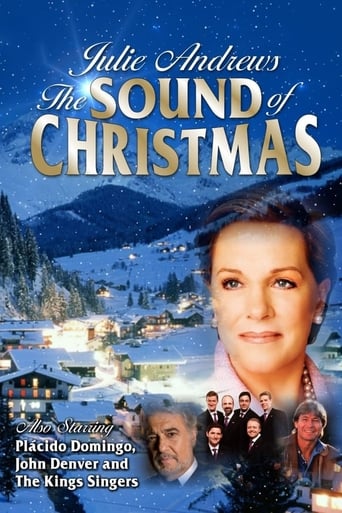














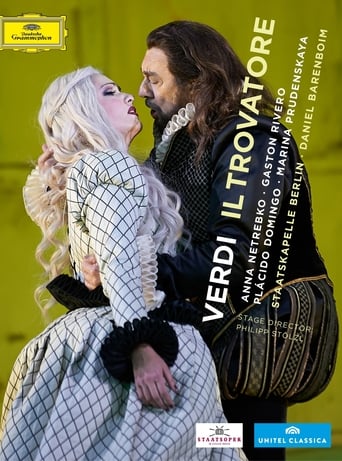

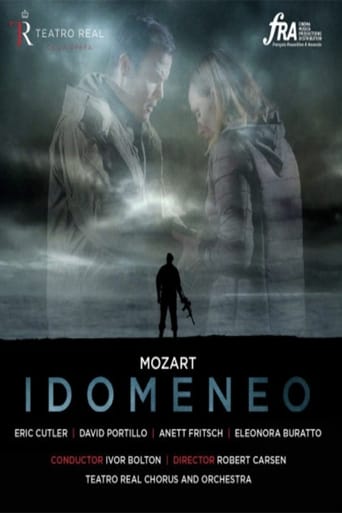

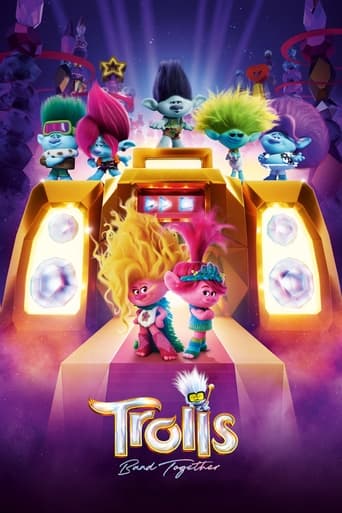
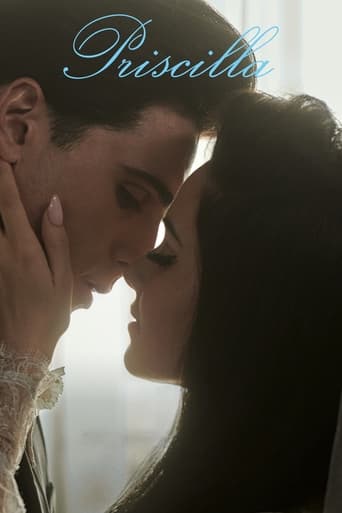
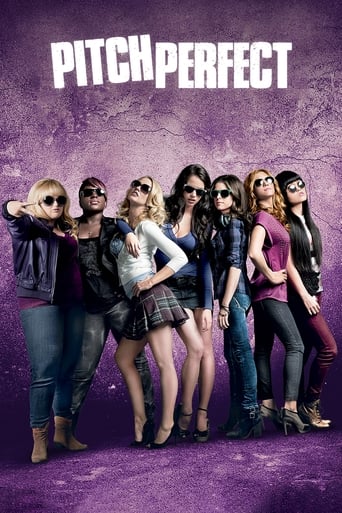
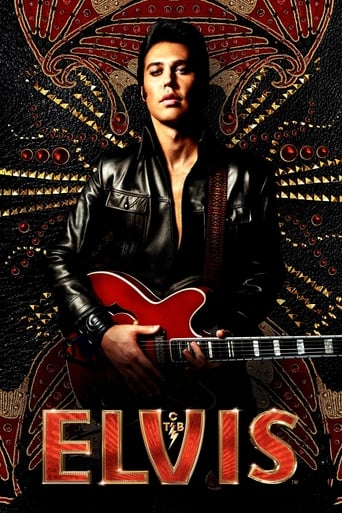
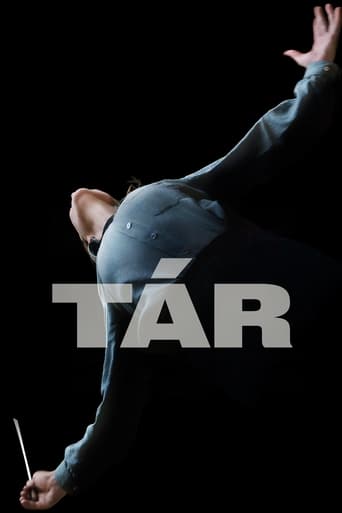
The Nomi Song
Looks like an alien, sings like a diva - Klaus Nomi was one of the 1980s' most profoundly bizarre characters to emerge through rock music: a counter tenor who sang pop music like opera and brought opera to club audiences and made them like it. The Nomi Song is a film about fame, death, friendship, betrayal, opera, and the greatest New Wave rock star that never was!